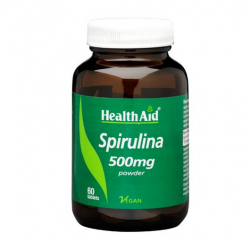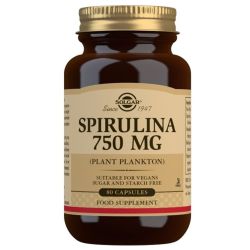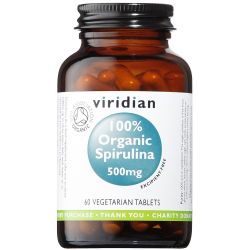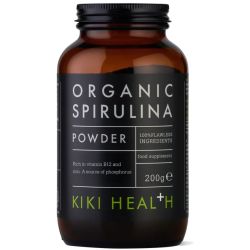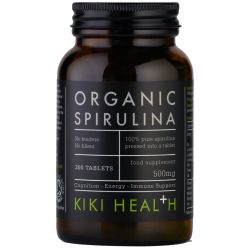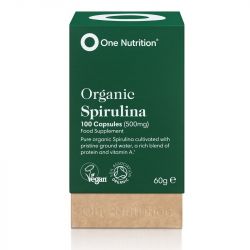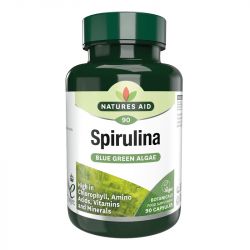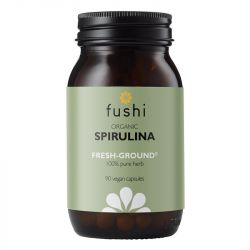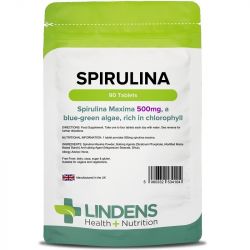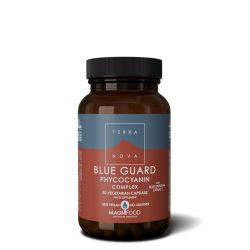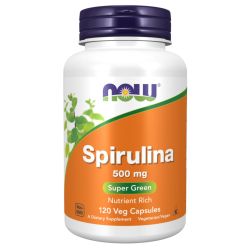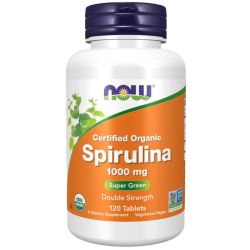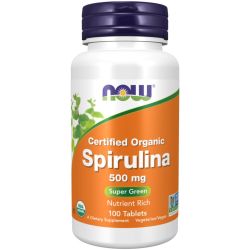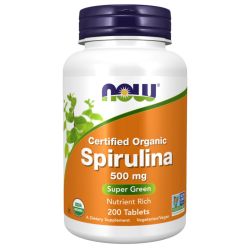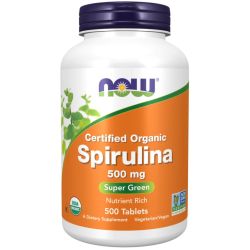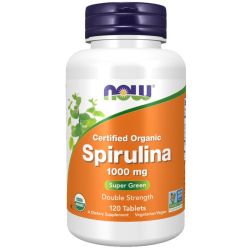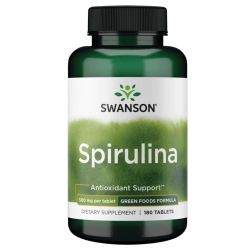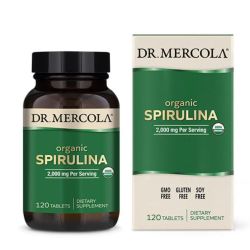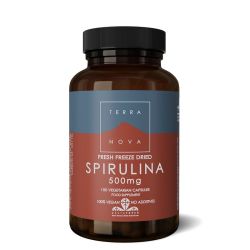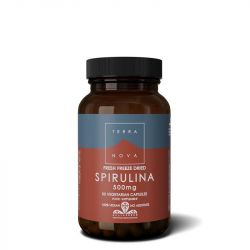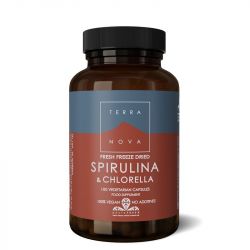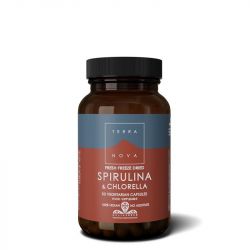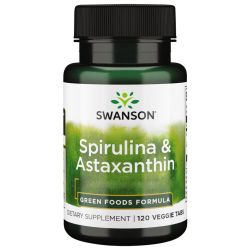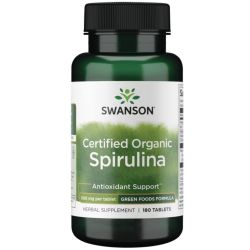Spirulina
Spirulina is a type of algae that is green-blue in colour, and is understood to be one of the planet's oldest forms of life. It is considered a superfood, and was once used by the Aztecs to boost performance and endurance. It contains high levels of protein that are similar to eggs, making it a popular supplement for people on low-meat diets. There are many health benefits to spirulina, as it is high in vitamin content and magnesium, and has high anti-inflammatory and antioxidant properties. It has a bitter flavour, so is often taken as a supplement and mixed in with smoothies or drinks.
All you need to know about Spirulina
Is spirulina high in vitamins?
Spirulina is a good source of vitamins B1, B2 and B3, as well as copper, iron and magnesium, which helps to support a healthy cardiovascular system and heart health. It also helps us create energy from our food and produce building blocks (proteins). As some people lack getting the right vitamin content for their body's needs due to low-protein diets, a spirulina supplement is a great way to get your RDA of certain nutrients.
What are the health benefits of spirulina?
Spirulina is packed with nutrients and a protein called phycocyanin, which is high in pain-relief and anti-inflammatory properties, helping to aid brain and heart health. Spirulina, like other anti-inflammatory supplements, may reduce the risk of the body developing certain cancers that are linked to inflammation because of its pigment, which is known to kill cancerous cells.
Does spirulina support the immune system?
Spirulina is rich in vitamins and minerals that help to support a healthy immune response. It is high in vitamins C, B6 and E, which helps to increase production of white blood cells, which help to fight infections, viruses and bacteria. Studies have also suggested that spirulina is effective at treating flu, HIV and herpes.
Are there any risks if I take spirulina supplements?
Spirulina is high in nutrients, but because of the way it can be harvested in some environments, it may contain high levels of bacteria and metals. These can cause a stomach upset, loose stools, and may be toxic to the liver. If you are pregnant or breastfeeding, you should not take spirulina unless you have consulted your GP first. Spirulina can also reduce blood clotting, and may increase the chances of bleeding or bruising in those on blood-thinning medications.

